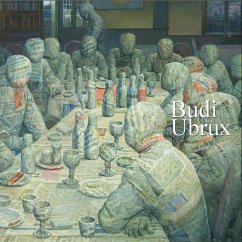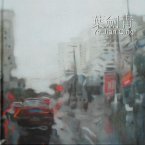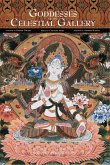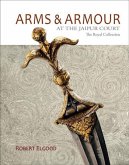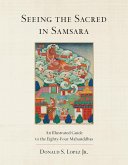One of the most progressive and radical new artists to emerge in Asia, Budi Ubrux (b.1968) is less a visionary than an acerbic social reactionary. Prior to winning the Philip Morris Indonesian Art Award in 2000, Budi Ubrux was a billboard artist and painter in Switzerland. His paintings are powerful satirical observations on social degeneration through the alarmingly haunting aesthetic of faceless figures mummified in newsprint. Inspired by the Indonesian government's transitional period from the "Orde Baru" (New Order) to the "Orde Reformasi" (Reformation Order) in 1999 and its resulting impact on society, his works struggle with the themes of political oppression, the ironic role of the media, and above all, a strong sense of disappointment in prevalent ideologies, and disenfranchisement of the individual. Attempting to locate "the ulcer of corruption" - the artist's own words - in the heavily politicized agenda of contemporary society, Budi explores the concept of a mediated reality through the role of newspapers. Historically, media was supposed to be the "eyes and ears of the people", with ethical reporting integrity. In the paintings, the vicious irony of an overwhelming and subversive media culture reveals its reductionist effect on subscribers. The newsprint wraps itself around human life, effacing, suffocating and blinding the figures within. Its substance literally carries the weight of our ulcerating social fabric with its content of screaming headlines and tawdry iconism; its transient consumerist philosophy has been forced on to our persons. .
Hinweis: Dieser Artikel kann nur an eine deutsche Lieferadresse ausgeliefert werden.
Hinweis: Dieser Artikel kann nur an eine deutsche Lieferadresse ausgeliefert werden.

